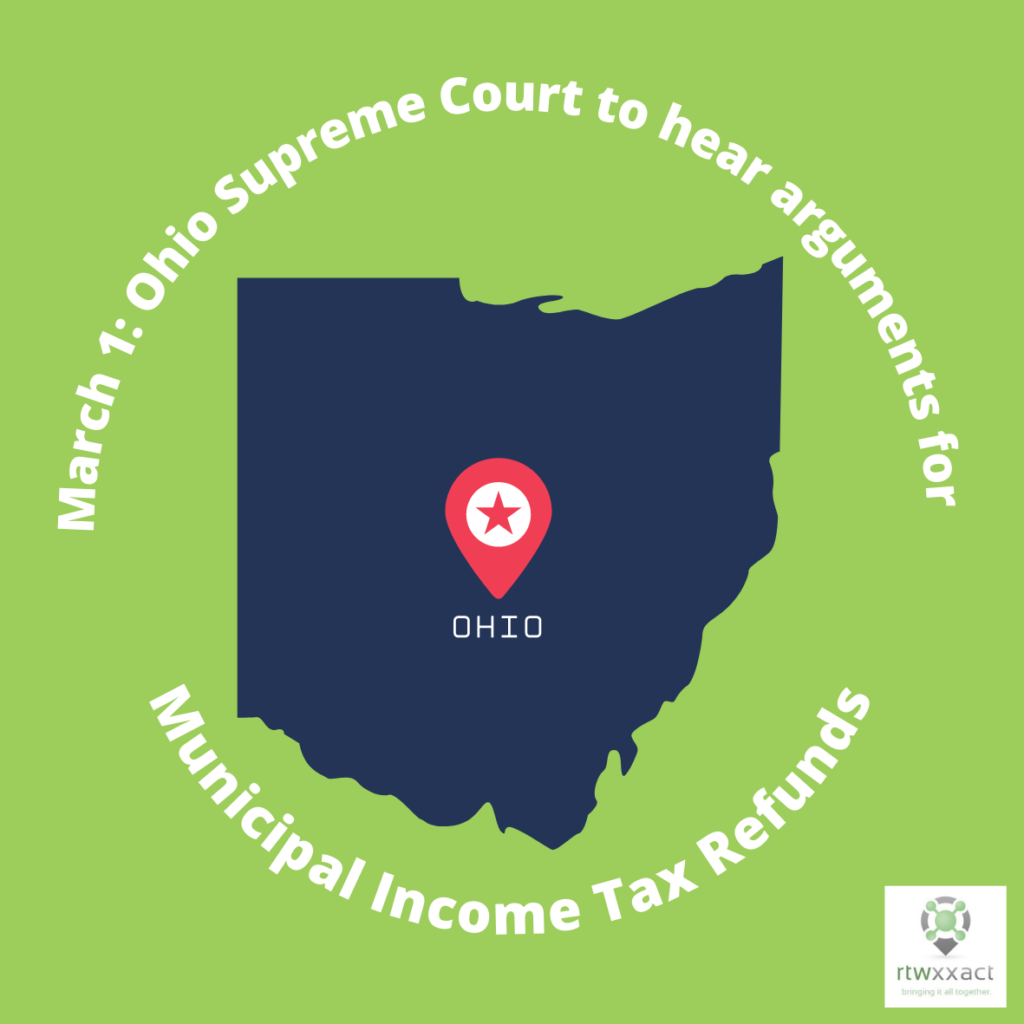The Ohio Supreme Court is set to hear oral arguments on Wednesday, March 1 in taxpayers’ case to obtain 2020 municipal income tax refunds. A brief was filed by the OSCPA filed on Aug. 10, 2022, to support those taxpayers based on the Society’s position that taxing persons who neither work nor live in a jurisdiction is unconstitutional.
Section 29 and R.C. 718.011 of House Bill 197, a 2020 law change early in the pandemic, was intended to address the significant withholding challenges faced by employers of workers who suddenly were working remotely – often outside the city where the business itself was located. However, many cities where the money was withheld refused to grant refunds to remote taxpayers.
OSCPA argues that the cities are interpreting R.C. 718.011 and Section 29 as a taxing provision, or in the alternative, as a situs of where income was earned provision, but that is not what the law says or means. R.C. 718.011 is not a taxing provision, nor does R.C. 718.011 situs where income is earned for purposes of imposing tax. It is a safe harbor to simplify employer withholding. It clearly states that the deemed location is, “for purposes of division (B)(1)” – (where the 20-Day Withholding Exception is codified) and does not determine the ultimate taxability of the wages in the hands of the employee.”
OSCPA worked in 2021 to secure a law change in House Bill 110 ensuring qualified remote workers would be able to receive municipal tax refunds for Tax Year 2021. In that same bill, the Legislature left it up to the Ohio Supreme Court to address refunds for 2020. The goal is that the Ohio Supreme Court will clearly recognize the distinction between employers’ withholding and employees’ tax liability.
Several cases were filed in Ohio questioning the constitutionality of requiring individuals to pay income tax to municipalities where they neither lived nor physically performed services. Two of those cases have reached the Ohio Supreme Court. Both were decided against the taxpayers at the appellate level, and the Ohio Supreme Court declined to hear the first appeal (Columbus) in March 2022. On June 7, 2022, the Ohio Supreme Court voted 4-3 to take up the second case (Cincinnati), Schaad v. Alder.
The arguments will be broadcast live beginning at 9:00am on the Ohio Channel, where they are also archived. Court News Ohio on Feb. 22 wrote a preview of the case, and the Court’s Office of Public Information also released a detailed article. A final decision is not expected until several months after the March 1 oral arguments.



